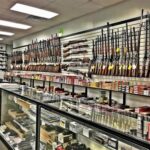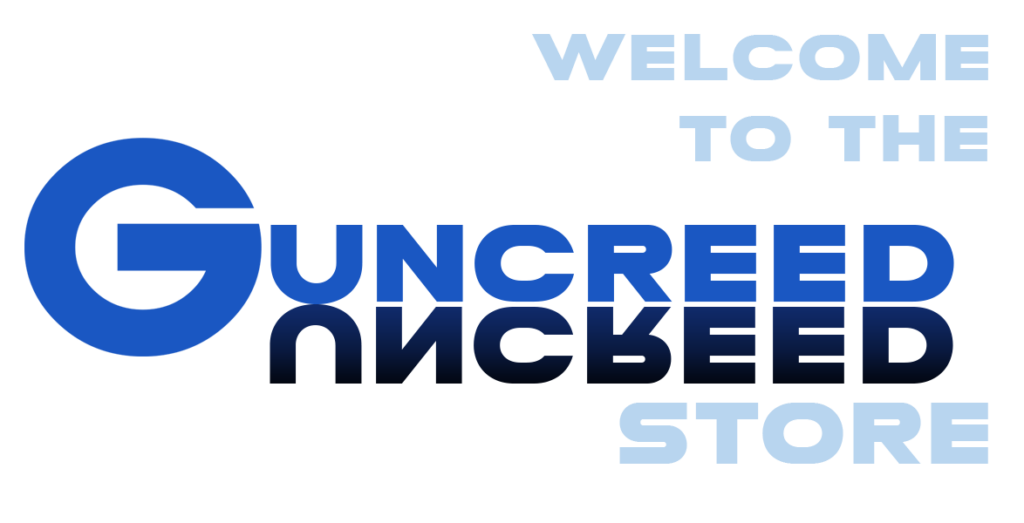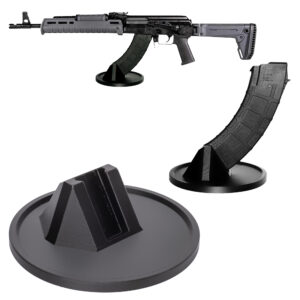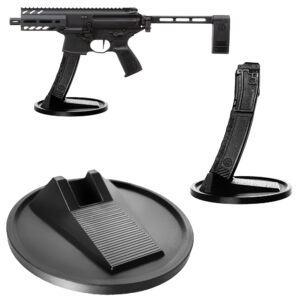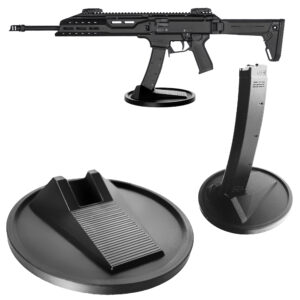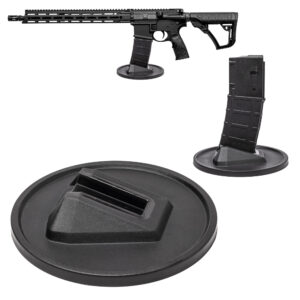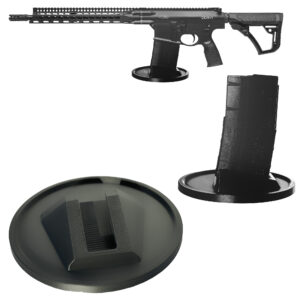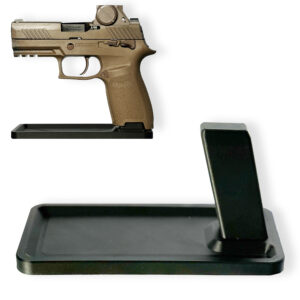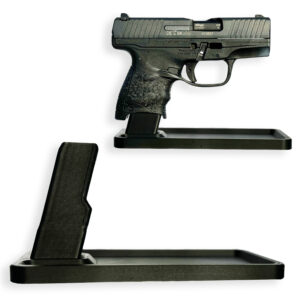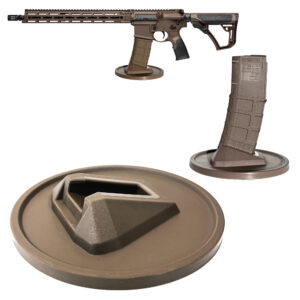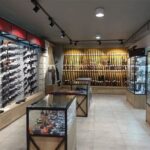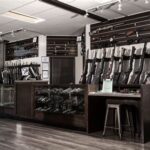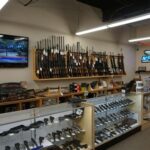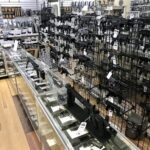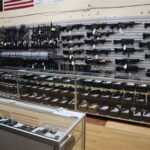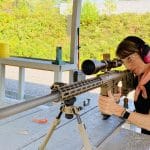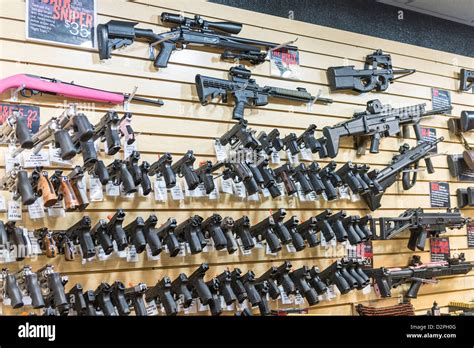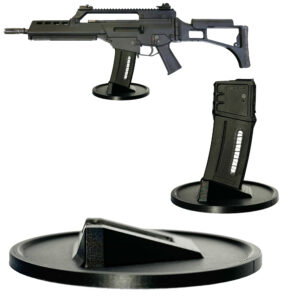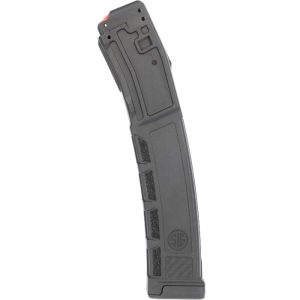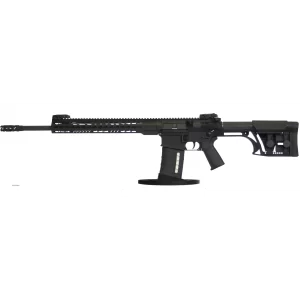Introduction To Firearm Competitions
Firearm competitions have long held a place in sporting history, blending precision, skill, and discipline in a unique arena of athleticism. These events span a variety of disciplines and formats, from trap shooting and skeet to practical shooting and long-range rifle competitions. Each discipline presents its own set of challenges and appeals, drawing a diverse array of participants ranging from novices eager to test their skills to seasoned professionals aiming to perfect their craft.
The world of firearm competitions is as rich and varied as the individuals who participate in it.
Generally, firearm competitions are based on the principles of accuracy, speed, and control. They demand not only physical capabilities but also mental acuity, pushing competitors to maintain poise under pressure. Shooters must exhibit proficiency in handling firearms, an understanding of ballistics, and the ability to strategize effectively, whether they are sending bullets downrange or navigating complex courses of fire. Beyond technical skills, participants often find that mental preparation and focus are critical components in achieving success.
This nurturing of diverse skill sets is one reason why firearm competitions attract such a dedicated and passionate following.
The global appeal of firearm competitions is reflected in the variety of events held across different cultures and regions. From the Olympic shooting events representing the pinnacle of prestige to local club matches, these competitions serve both as platforms for friendly rivalry and as stepping stones for those aspiring to achieve national or international recognition. They play an essential role in promoting firearm safety and education, as all participants are required to adhere to strict protocols and demonstrate responsible firearms handling.
Moreover, firearm competitions foster a sense of community among enthusiasts. They provide opportunities for individuals to share knowledge, develop camaraderie, and celebrate shared interests. For many, these gatherings are not just about competition but also about the connections and friendships forged along the way. As such, the growth of firearm competitions continues to be fueled by both competitive spirit and community engagement, making them a staple in the landscape of both sports and hobbyist pursuits.
The Role Of Sponsorship In Firearm Competitions
Sponsorship plays a crucial role in the realm of firearm competitions, offering vital support both to the organizers and participants. It facilitates the growth and sustainability of these events, enhancing their quality and reach. One of the primary benefits of sponsorship is financial support, which helps cover essential costs such as venue rental, safety equipment, and marketing expenses. By offsetting these costs, sponsors allow event organizers to focus on creating a competitive and exciting environment, conducive to showcasing skills and safety.
Moreover, sponsorship in firearm competitions can lead to the provision of high-quality equipment. Sponsors often supply competition-grade firearms, ammunition, and accessories, which not only elevates the standard of competition but also provides participants with the opportunity to use top-tier gear. This access can be particularly beneficial to young or emerging athletes who may not have the resources to procure such equipment independently.
Beyond financial and material support, sponsorships also contribute to the visibility and credibility of firearm competitions. Association with well-known brands or companies can lend a sense of trustworthiness and prestige, attracting more participants and spectators. This increased visibility, in turn, can draw media attention, leading to broader coverage and enhanced public interest in the sport. As a result, firearm competitions can engage a wider audience, educating them on aspects of shooting sports such as skill, precision, and safety.
Furthermore, sponsorship often encourages community involvement and partnership, fostering a supportive network among competitors, organizers, enthusiasts, and sponsors. This network can lead to collaborative efforts in promoting responsible firearm use and emphasizing the importance of safety regulations. In essence, sponsorship in firearm competitions not only sustains the events financially but also underpins their overall impact, helping to nurture a culture of sportsmanship, precision, and responsible firearm handling.
Through these various roles, sponsorship acts as a catalyst for the continued evolution and success of firearm competitions worldwide.
Benefits Of Sponsoring Firearm Competitions
Sponsoring firearm competitions offers a range of benefits that extend beyond mere brand visibility. One of the primary advantages is the ability to connect with a dedicated and passionate audience. Firearm enthusiasts and competitors often form tight-knit communities centered around shared interests and values. By sponsoring these events, companies have the opportunity to engage with this audience on a personal level, fostering brand loyalty and building relationships with potential customers who are likely to remain loyal supporters.
Additionally, sponsoring firearm competitions provides a platform for demonstrating a company’s products in action. For manufacturers of firearms, ammunition, and related accessories, these events serve as a proving ground where the performance and reliability of their products can be showcased. Competitors often take note of equipment being used by their peers, which can lead to increased interest and sales. This hands-on exposure is invaluable in an industry where trust in the efficacy and safety of products is paramount.
Moreover, sponsoring these events helps in enhancing a brand’s credibility and reputation within the industry. Being associated with reputable competitions can position a company as a leader in the field, which can be particularly beneficial in a market where consumers are highly discerning. The association with professionalism and excellence can elevate a brand’s status among both competitors and spectators.
Furthermore, firearm competitions often attract media attention, allowing sponsors to benefit from additional exposure. This publicity can extend beyond the scope of the event, leading to increased recognition in broader communities. It also provides opportunities for engaging content creation, as exciting competition footage and interviews can be leveraged for marketing purposes.
Lastly, sponsoring firearm competitions contributes to the growth and sustainability of the shooting sports community. By supporting these events, sponsors play a vital role in promoting responsible firearm use and fostering a sense of community among participants. This investment in the community not only benefits the sport but also reflects positively on the sponsors themselves, showcasing a commitment to the industry’s long-term viability.
Identifying The Right Competitions To Sponsor
When considering sponsoring firearm competitions, identifying the right events is crucial to maximizing positive exposure and aligning with organizational values. The first step is understanding the target demographic. It is essential to sponsor competitions that attract participants who align with the brand’s core audience. This involves researching the types of events that draw enthusiasts, professionals, or those with a particular interest in specific firearm disciplines, ensuring that the event’s attendees and viewers match the sponsor’s desired customer profiles.
Equally important is assessing the scale and reach of the competition. Larger events often have a broader audience and provide more substantial exposure opportunities, but they may also come with higher sponsorship costs. In contrast, smaller, niche competitions might offer deeper engagement with a highly targeted audience but with less overall visibility. Evaluating the potential return on investment in terms of both visibility and brand loyalty is vital.
The reputation and ethos of the competition are significant factors. Sponsors should seek out events with a strong reputation for safety, professionalism, and sportsmanship. Competitions that prioritize these values reflect well on sponsors and help mitigate risks associated with backlash or negative publicity. Additionally, events that emphasize education, skill development, and community engagement often provide more meaningful association opportunities for sponsors.
Understanding the competition’s media presence and marketing strategies is another key consideration. Assessing how the event will be promoted—through social media, live streaming, partnerships with media outlets, or traditional advertising—can influence the decision to sponsor. Competitions with robust marketing efforts afford sponsors more exposure and engagement opportunities.
Finally, engaging with the organizers to understand their goals and how sponsors can support them can lead to more strategic partnerships. Aligning with competitions that share mutually beneficial objectives can enhance the impact of the sponsorship. By thoughtfully selecting the right competitions to sponsor, organizations can effectively bolster their brand and contribute positively to the firearm community.
Best Practices For Sponsorship Engagement
When sponsoring firearm competitions, engaging successfully with participants, organizers, and audiences is crucial for maximizing the impact and value of the sponsorship. Building strong relationships and fostering a positive reputation within the shooting sports community can significantly enhance the sponsor’s brand image and loyalty.
To achieve effective sponsorship engagement, it is essential to understand the core values and interests of the firearm competition community. Sponsors should dedicate time to learning about the sport’s traditions, rules, and the demographics of its participants. This knowledge helps in crafting tailored messages and activities that resonate with the community, showcasing genuine interest and support.
One of the most effective ways to engage is through active participation. Sponsors can enhance their presence by attending events, setting up booths, offering demonstrations, or providing expert talks. This active involvement allows for direct interaction with participants and spectators, creating opportunities for feedback and building personal connections. It also humanizes the brand, turning it into more than just a financial backer.
Moreover, digital engagement has become increasingly vital. Sponsors should leverage social media platforms and online forums specific to the shooting sports community to share content, celebrate achievements, and engage in conversations. Posting live updates, behind-the-scenes looks, and interviews can generate excitement and extend the reach of the competition beyond the event venue.
Collaborating with competition organizers to integrate the sponsor’s brand organically into the event is also important. This can be achieved through co-branded merchandise, course signage, and sponsoring specific segments or awards of the competition. Such strategies ensure the sponsor’s brand is visible and appreciated without overshadowing the event itself.
Finally, post-event engagement should not be overlooked. Following up with participants through thank-you messages, surveys, or exclusive offers can help maintain connections and gather valuable insights for future sponsorships. By fostering long-term relationships and demonstrating a commitment to the sport, sponsors can enhance their reputation and build brand loyalty within the firearm competition community.
The Impact Of Sponsorship On Brand Recognition And Reputation
Sponsoring firearm competitions can significantly enhance a brand’s recognition and reputation, particularly among enthusiasts and stakeholders within the firearms community. When a company chooses to sponsor such events, it demonstrates an active involvement and interest in the sport and its participants. This proactive engagement can lead to increased visibility, as sponsors often enjoy prominent placement of their logos on promotional materials, merchandise, and at the competition venue itself.
Such exposure ensures that the brand is seen by all attendees, which can include competitors, officials, spectators, and media personnel. This wide-reaching visibility aids in embedding the brand in the minds of the audience.
Moreover, sponsorship of firearm competitions can also positively influence a brand’s reputation. By associating with these events, a company aligns itself with qualities such as skill, precision, and passion, which are inherent in the sport. This association can enhance perceptions of the brand as one that values and supports these attributes within a highly specialized and close-knit community. Additionally, sponsoring reputable and well-organized events can lead to a higher trust level among potential and existing customers, as they associate the brand with quality and reliability.
Financial backing from sponsorships helps organizers improve the quality of the competition, which, in return, enhances the experience for everyone involved. This mutually beneficial relationship can endear the brand to participants and enthusiasts, fostering goodwill and positive word-of-mouth. Furthermore, brands that consistently sponsor such competitions may be perceived as more dedicated to the sport, cementing long-term recognition and loyalty from stakeholders.
In a market that is often crowded and competitive, the ability to stand out through event sponsorship can provide a significant advantage. By forging emotional and value-based connections through these events, brands can solidify their status and appeal, ensuring they are not only recognized but also respected within the firearms community.
Evaluating The Success Of Sponsorship Efforts
Evaluating the success of sponsorship efforts in firearm competitions involves a comprehensive analysis of various factors that reflect the effectiveness of the sponsorship. One primary measure of success is brand visibility. This includes assessing how prominently the sponsor’s branding is featured during the event and in related media, such as advertisements, promotional materials, and event signage. High visibility can often equate to greater brand recognition and awareness, which are key objectives for many sponsors.
Another critical factor is audience engagement. This involves examining how participants and spectators interact with the sponsor’s brand during the competition. Metrics such as the number of visitors to sponsor booths, the level of participation in sponsor-hosted activities, and the engagement on digital platforms associated with the event can provide valuable insights. Social media interactions, including likes, shares, and comments related to the sponsor and event, are also crucial indicators of successful engagement.
Sales and lead generation is another important metric for evaluating sponsorship success. Increased sales of products or services during and following the event can indicate a direct return on investment. Additionally, collecting and analyzing data on leads generated, such as contact information from interested potential customers, is essential to understanding both immediate and long-term impacts of the sponsorship.
An often overlooked, yet significant measure of success, is the alignment of values and brand image with the event and its audience. This requires assessing how well the sponsorship resonates with the values of the participants and matches the image or identity the brand seeks to project. A successful alignment can lead to enhanced brand loyalty and customer retention.
Moreover, feedback from event organizers, participants, and spectators can provide qualitative insights into the sponsorship’s impact. Surveys and interviews can uncover perceptions of the brand and its presence at the event, offering deeper understanding beyond quantitative metrics. By combining these qualitative and quantitative assessments, sponsors can gain a holistic view of their sponsorship’s success, informing future sponsorship strategies and decisions.
